[ad_1]
A few of the iconic legumes, bean crops are nitrogen-fixing powerhouses that yield delicious pods of many shapes, colors, and sizes. Inexperienced beans are snapped up to date off the vine for summer time season sautes and autumn casseroles, whereas shelling types ought to dry and mature for soups, stews, and longer-term storage. Realizing when and how one can harvest these different types is crucial.
Whether or not or not you choose inexperienced beans or shelling types, vining or bush cultivars, harvesting on the correct time is essential for style and storage. Proper right here’s how one can determine the best choosing time.
Trio Bush Bean


‘Gold, Purple & Inexperienced’ Trio Bush Bean Seeds
Pinkeye Purple Bean
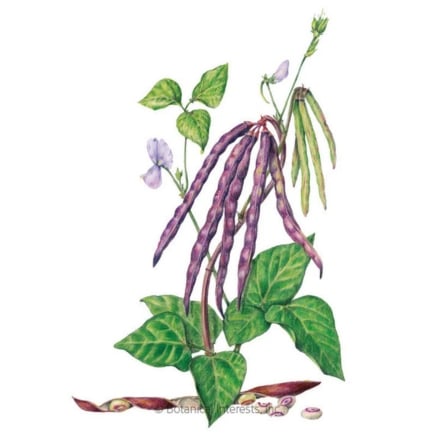

Pinkeye Purple Hull Bush Cowpea Bean Seeds
California Blackeye Bean
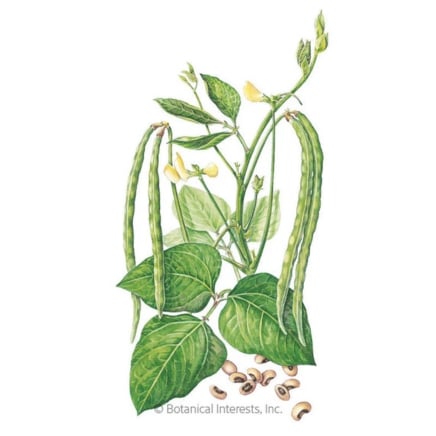

California Blackeye #5 Bush Cowpea Bean Seeds
When Should I Harvest Beans?
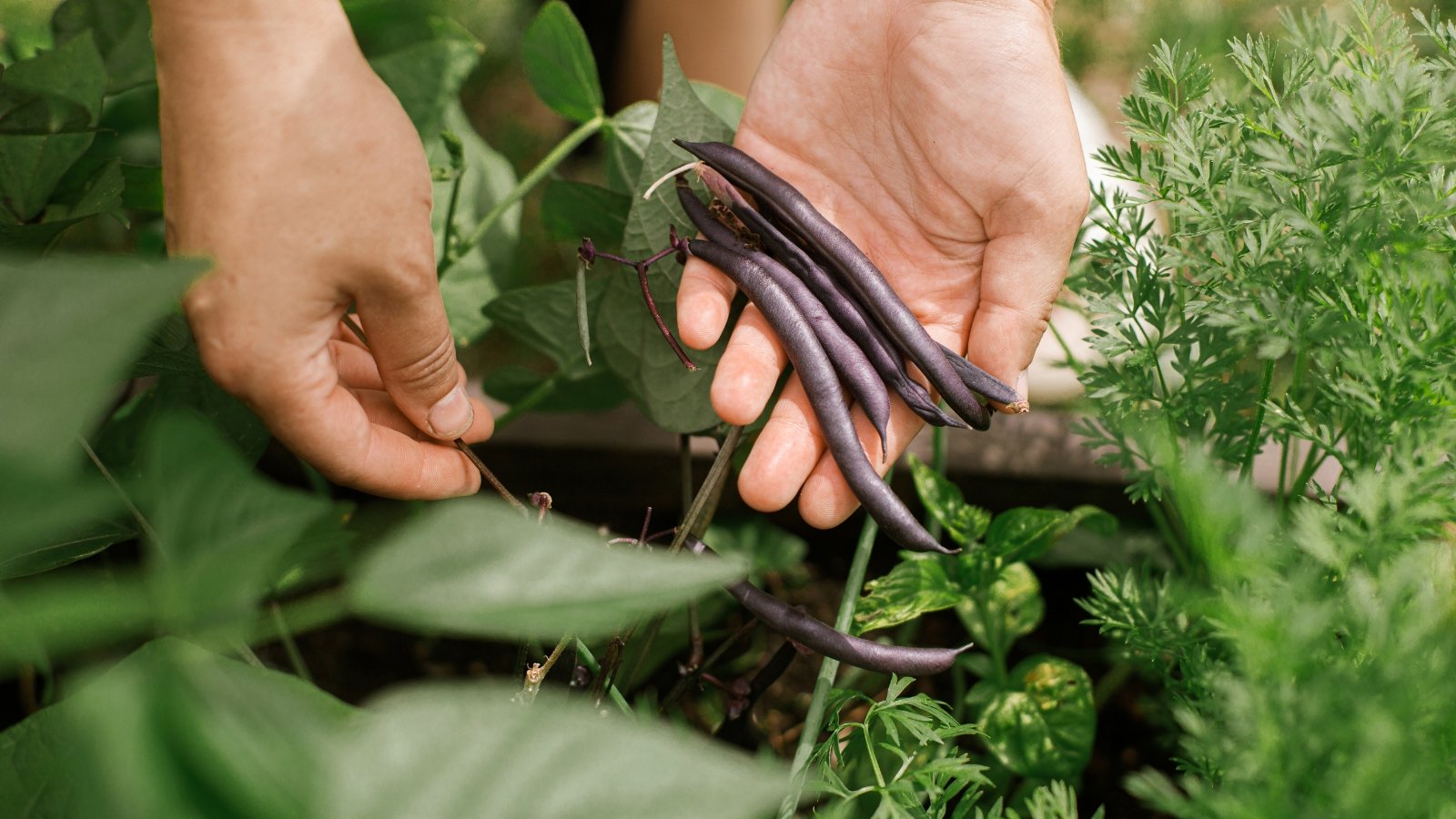

Up to date (inexperienced or snap) beans are harvested 45-65 days after sowing, when the pods are slender and easily snap from the vine. Shelling (dry) types take longer to mature, usually requiring 60-90 days. They must be picked when the shells are completely dry, fibrous, and straw-colored. Within the occasion you shake a pod, the dried seeds must rattle inside.
Keep in mind, inexperienced beans are harvested youthful and tender to permit them to easily prepare dinner dinner into sautes and casseroles. The seeds might barely swell contained within the pods, nevertheless the bean stays clean, pliable, and inexperienced.
Shelling (dry) varieties require further time to completely develop and the within seeds must be cooked for a protracted time-frame sooner than they’re edible. Dry varieties are most interesting for long-term storage, and snap varieties are good for fresh-eating or light steaming.
6 Strategies for Optimum Bean Harvest
You can develop these legumes all by means of the frost-free season, and loads of gardeners need to plant them in succession. As an illustration, your first spherical of snap varieties can arrange in late spring for summer time season harvests. Then, plant one different succession in mid-to-late summer time season to ensure fall harvests for trip celebrations.
Dry (storage) varieties require further time to mature, so be certain you get them inside the ground on the very least three months sooner than your anticipated fall frost. Proper right here’s how one can know when to reap your ripe beans and what to do with them after choosing.
Know Your Choice
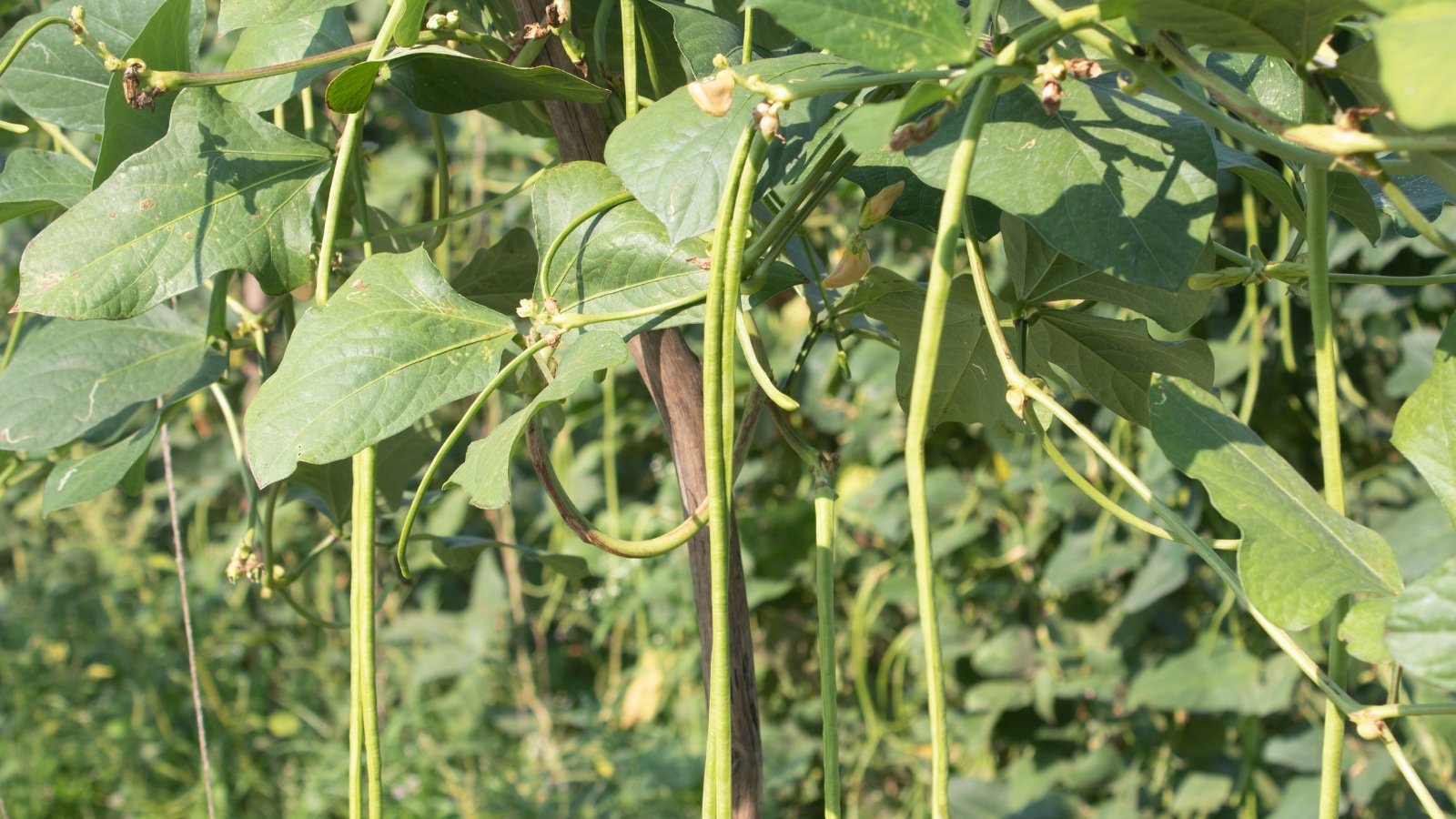

There are two major types of this iconic legume: inexperienced beans and shelling types. Inexperienced varieties are moreover known as up to date, wax, or snap beans. As an illustration, ‘Provider’ and ‘Kentucky Shock’ are widespread seed varieties.
Shelling varieties are moreover known as dry or soup beans. Examples of this type embody lima, cannellini, pinto, ’Pinkeye Purple Hull’ cowpeas, and ‘Scarlet Runner.’ Proper right here’s a simple chart that may help you remember the assorted nomenclature:
| Inexperienced beans (additionally known as…) | Shelling beans (additionally known as…) |
| Up to date | Dry |
| Wax | Soup |
| Snap | Storage |
Any of these cultivars may be bush or pole varieties. Bush types develop low to the underside and don’t usually require assist. In distinction, pole cultivars develop as tall, rambling vines that need a stake or trellis.
It’s essential to know what type you would have on account of it could determine the best time for harvesting. Some cultivars may be picked as up to date and dry pods. The essential factor distinction is the best way it’s essential use them in your kitchen:
| Using Up to date Beans | Using Dry Beans |
| Up to date salads | Storage |
| Steaming | Soups |
| Sauteing | Stews |
| Trip casseroles | Soaking and slow-cooking |
| Glazing | Seed-saving |
Harvest Inexperienced Beans Youthful
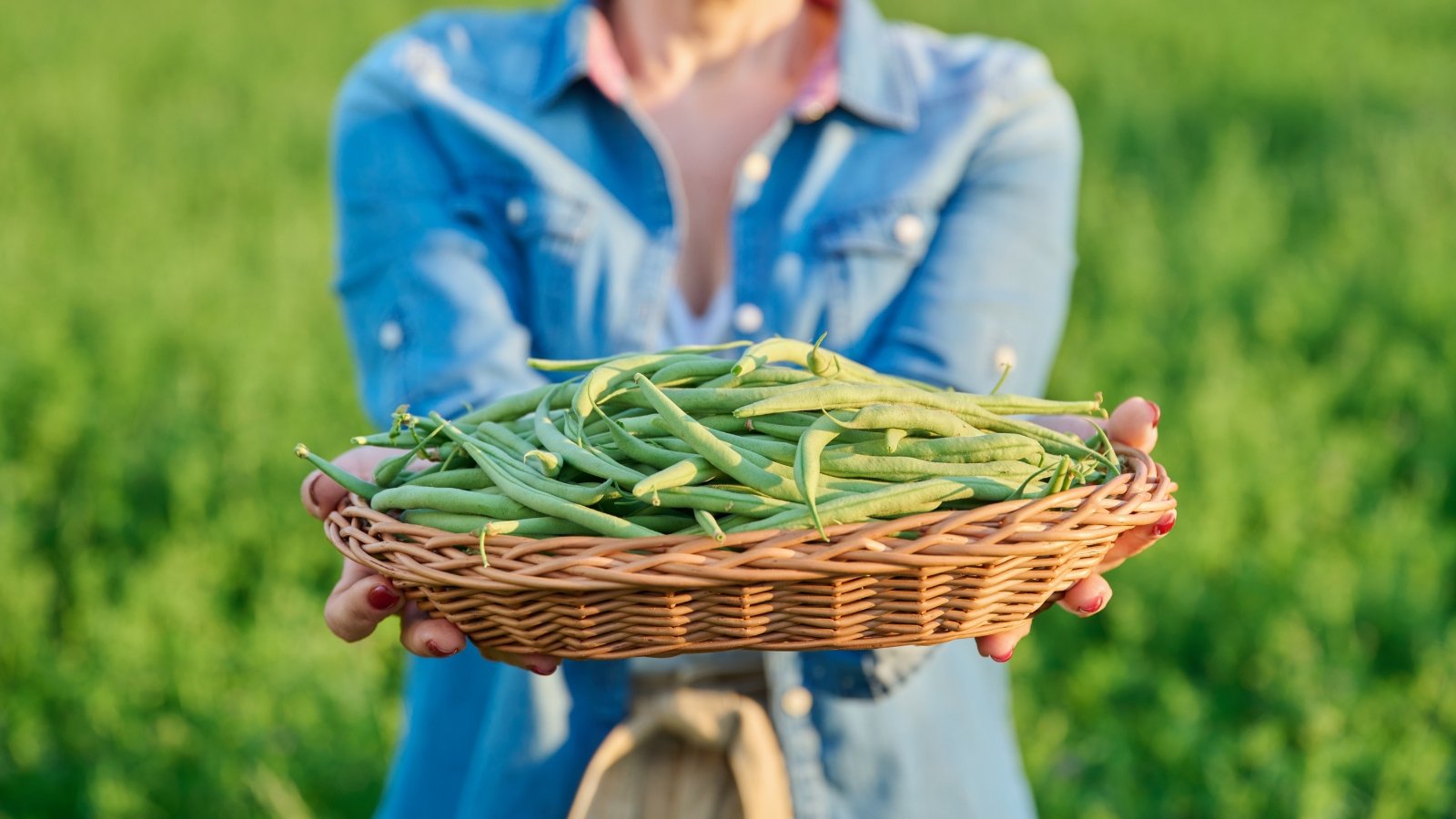

You will perceive it’s time to reap snapping types when the slender pods appear in your yard. At pencil-thickness, they’re ready to cut or snap off the plant. Take care to hold the bush or vine in place so that you just don’t accidentally tear the foliage. As a check out, you’ll try snapping a inexperienced bean in half. It must snap merely, and elegance crisp and tender.
These varieties are typically ready 45 to 65 days after seeding, they often continually produce further flowers and pods as you select. Further choosing really means elevated yields! Within the occasion you let the seeds swell too huge, the pods will most likely be strong and stringy.
At the moment, you’ll each select them off to allow the plant to start out out over with up to date flowers. Alternatively, go away the pods to dry and mature for use as shelling pods, or save the seeds for subsequent yr.
Await Shelling Beans to Dry
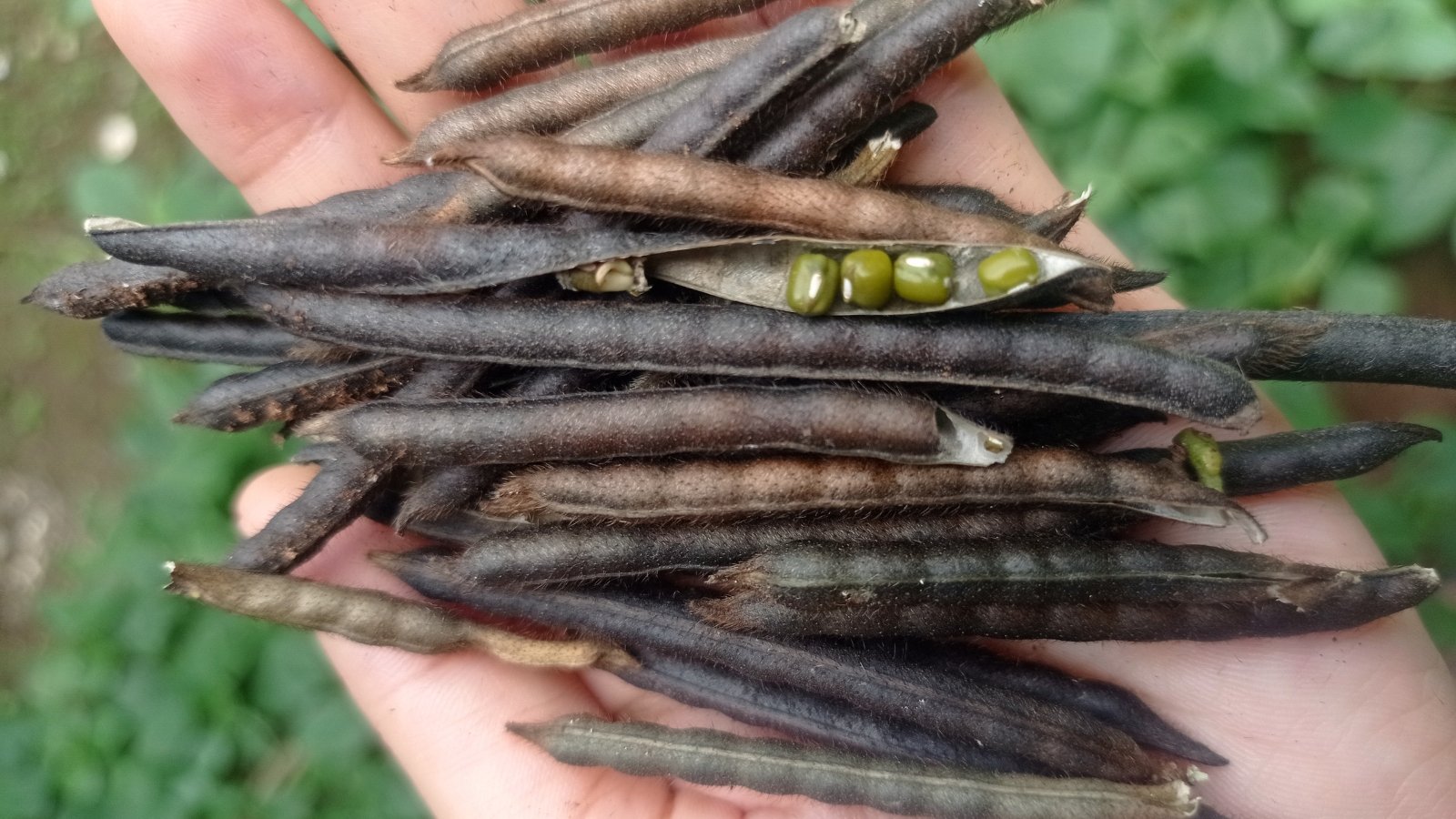

A dry, rattling seed pod is the perfect technique to know when it’s time to reap shelling varieties. The pods will flip tannish-brown (or darkish brownish-purple for pink varieties) and the seeds inside will swell to an even bigger dimension.
You’ll discover the lumpy outlines of the mature seeds, indicating that they’ve all the carbohydrates and nutritional vitamins inside them to provide a model new plant or feed your family members for winter.
Observe that specialty heirloom varieties can have rainbows of assorted pod colors. A really highly effective indicator is the rattling sound when you shake the pods. Moreover, you’ll always see the swelling outline of the seeds pressing in the direction of the shell. Within the occasion you open a pod, the beans must be exhausting adequate that your fingernail can’t scratch them.
Snap Pods From the Plant
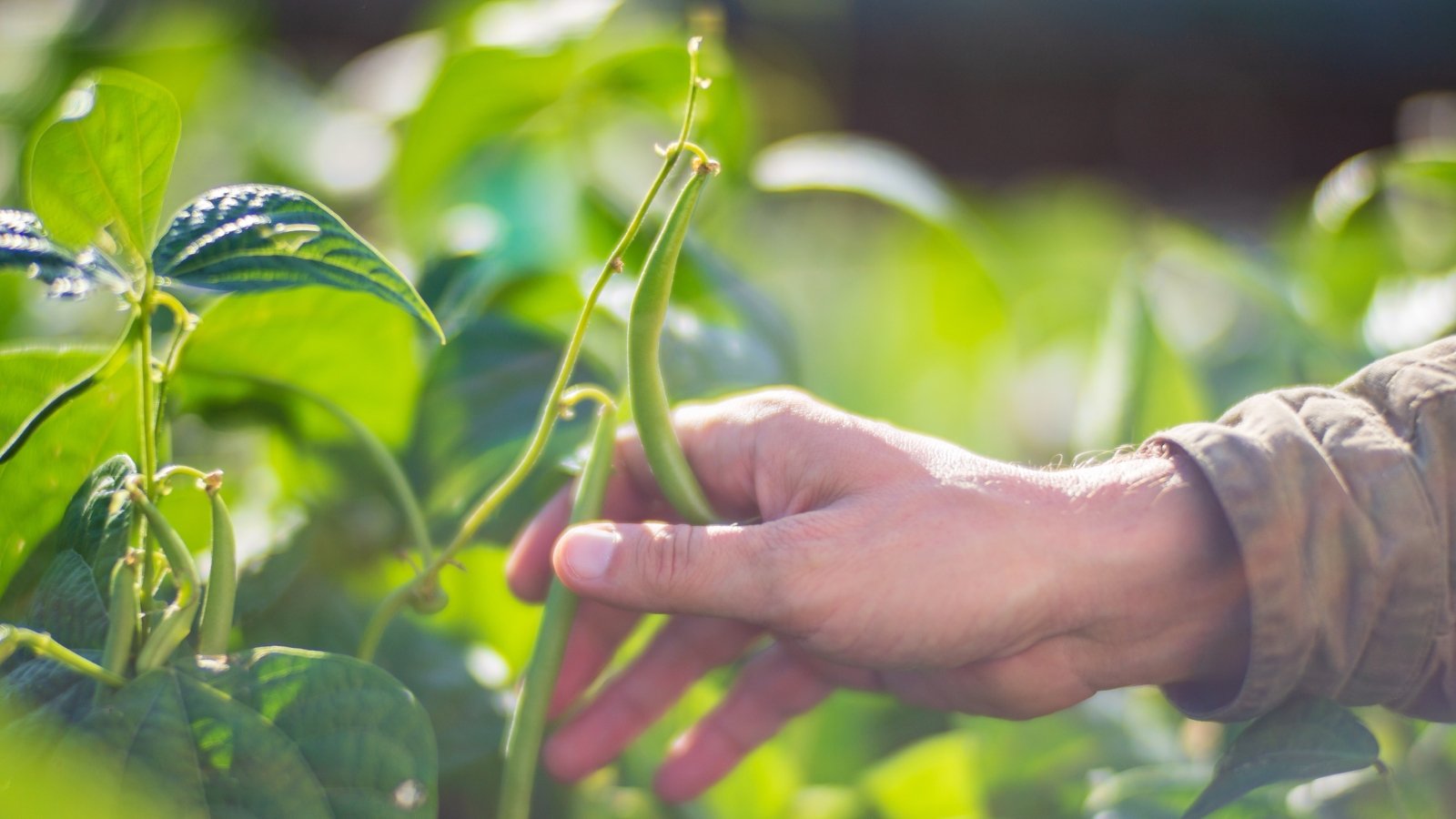

Whether or not or not you’re harvesting up to date or shelling types, the choosing course of is comparable. Snap the pods from their attachment stage. For storage features, be further cautious with the up to date types on account of the “caps” or leafy lids on excessive of the bean help them final extra in your fridge. Dried pods will most likely be eradicated by means of the shelling course of, so you’ll switch further quickly whereas choosing.
Skilled Tip: Put your dried pods in a pillowcase and whack the pillowcase in the direction of the underside. This may break the pods open and launch the seeds from the shells, making it easy to type by the use of them and put collectively for storage.
Retailer Appropriately
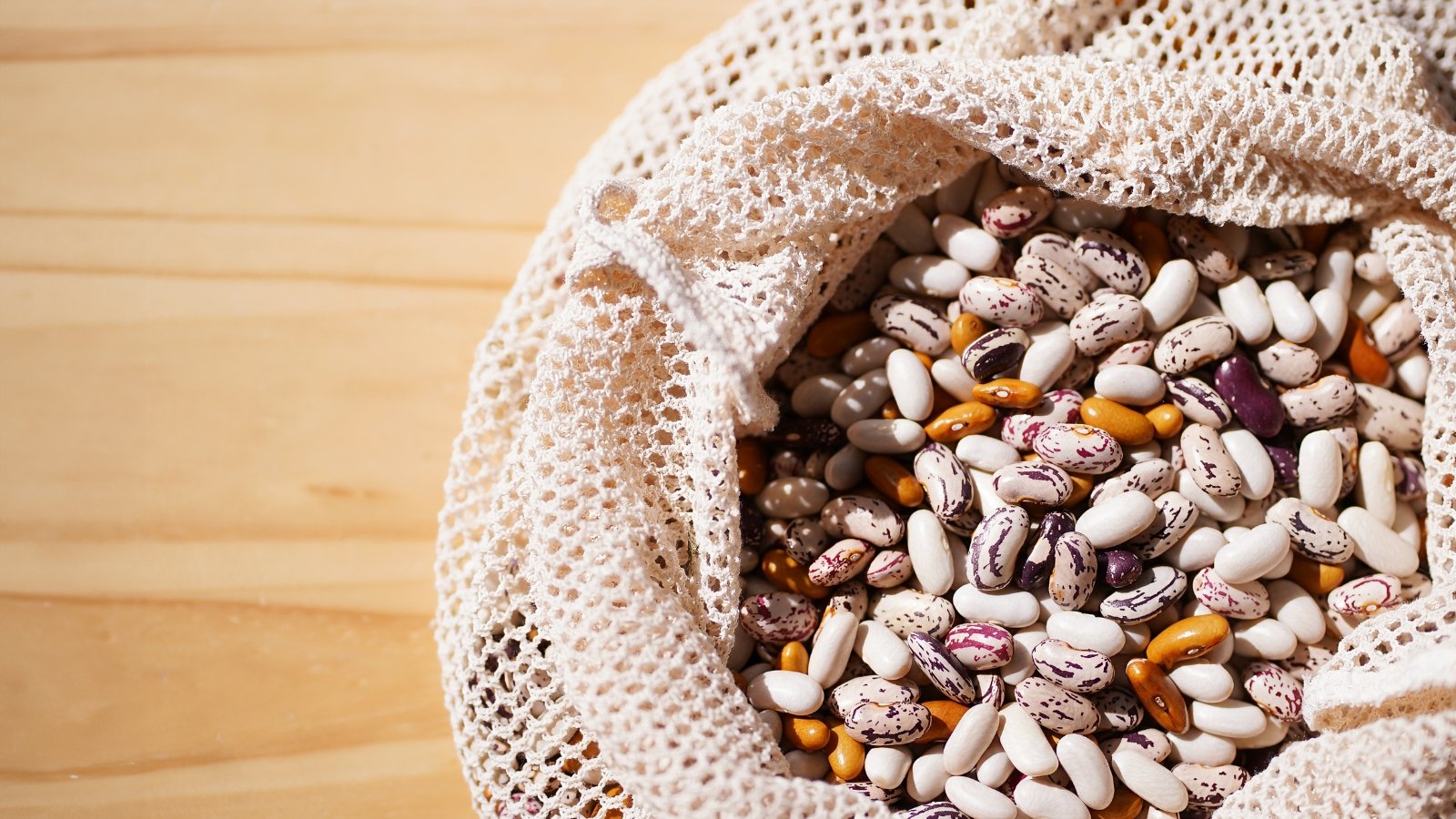

Inexperienced pods are most interesting saved inside the fridge immediately after choosing. It helps to put them in a container or bag to handle moisture and freshness. Within the occasion you go away them out in your crisper drawer, they could change into limp and dehydrated.
Dried varieties may be saved at room temperature in a darkish, dry place. Delicate and moisture are problematic—they’re seeds, in the end. An extreme quantity of oxygen could trigger them to go rancid, and an extreme quantity of humidity could trigger them to sprout or mildew.
A paper bag or discipline is okay for a few days after harvest, nevertheless be certain that rodents can’t get into the seeds. As quickly as you would possibly be capable to course of, gently crush the pods to loosen the shells after which take away the seeds from inside.
Preserve them in sealed plastic baggage or glass containers in a cool, darkish place like a pantry. They’re ready to utilize in your favorite dried bean recipes, along with boiling, stews, soups, or canning for long-term preservation.
A few of the iconic legumes, bean crops are nitrogen-fixing powerhouses that yield delicious pods of many shapes, colors, and sizes. Inexperienced beans are snapped up to date off the vine for summer time season sautes and autumn casseroles, whereas shelling varieties ought to dry and mature for soups, stews, and longer-term storage. Realizing when and how one can harvest these different types is crucial.
Whether or not or not you choose inexperienced beans or shelling types, vining or bush varieties, harvesting on the correct time is essential for style and storage. Proper right here’s how one can determine the best choosing time.
Trio Bush Bean


‘Gold, Purple & Inexperienced’ Trio Bush Bean Seeds
Pinkeye Purple Bean


Pinkeye Purple Hull Bush Cowpea Bean Seeds
California Blackeye Bean


California Blackeye #5 Bush Cowpea Bean Seeds
When Should I Harvest Beans?


Up to date (inexperienced or snap) beans are harvested 45-65 days after sowing, when the pods are slender and easily snap from the vine. Shelling (dry) types take longer to mature, usually requiring 60-90 days. They must be picked when the pods are completely dry, fibrous, and straw-colored. Within the occasion you shake a pod, the dried seeds must rattle inside.
Keep in mind, inexperienced beans are harvested youthful and tender to permit them to easily prepare dinner dinner into sautes and casseroles. The seeds might barely swell contained within the pods, nevertheless the bean stays clean, pliable, and inexperienced.
Shelling (dry) varieties require further time to completely develop and the within seeds must be cooked for a protracted time-frame sooner than they’re edible. Dry varieties are most interesting for long-term storage, and snap varieties are good for fresh-eating or light steaming.
6 Strategies for Optimum Bean Harvest
You can develop these legumes all by means of the frost-free season, and loads of gardeners need to plant them in succession. As an illustration, your first spherical of snap varieties can arrange in late spring for summer time season harvests. Then, plant one different succession in mid-to-late summer time season to ensure fall harvests for trip celebrations.
Dry (storage) varieties require further time to mature, so be certain you get them inside the ground on the very least three months sooner than your anticipated fall frost. Proper right here’s how one can know when to reap your ripe beans and what to do with them after choosing.
Know Your Choice


There are two major types of this iconic legume: inexperienced beans and shelling types. Inexperienced varieties are moreover known as up to date, wax, or snap beans. As an illustration, ‘Provider’ and ‘Kentucky Shock’ are widespread seed varieties.
Shelling varieties are moreover known as dry or soup beans. Examples of this type embody lima, cannellini, pinto, ’Pinkeye Purple Hull’ cowpeas, and ‘Scarlet Runner.’ Proper right here’s a simple chart that may help you remember the assorted nomenclature:
| Inexperienced beans (additionally known as…) | Shelling beans (additionally known as…) |
| Up to date | Dry |
| Wax | Soup |
| Snap | Storage |
Any of these cultivars may be bush or pole varieties. Bush types develop low to the underside and don’t usually require assist. In distinction, pole cultivars develop as tall, rambling vines that need a stake or trellis.
It’s essential to know what type you would have on account of it could determine the best time for harvesting. Some varieties may be picked as up to date and dry pods. The essential factor distinction is the best way it’s essential use them in your kitchen:
| Using Up to date Beans | Using Dry Beans |
| Up to date salads | Storage |
| Steaming | Soups |
| Sauteing | Stews |
| Trip casseroles | Soaking and slow-cooking |
| Glazing | Seed-saving |
Harvest Inexperienced Beans Youthful


You will perceive it’s time to reap snapping types when the slender pods appear in your yard. At pencil-thickness, they’re ready to cut or snap off the plant. Take care to hold the bush or vine in place so that you just don’t accidentally tear the foliage. As a check out, you’ll try snapping a inexperienced bean in half. It must snap merely, and elegance crisp and tender.
These varieties are typically ready 45 to 65 days after seeding, they often continually produce further flowers and pods as you select. Further choosing really means elevated yields! Within the occasion you let the seeds swell too huge, the pods will most likely be strong and stringy.
At the moment, you’ll each select them off to allow the plant to start out out over with up to date flowers. Alternatively, go away the pods to dry and mature for use as shelling pods, or save the seeds for subsequent yr.
Await Shelling Beans to Dry


A dry, rattling seed pod is the perfect technique to know when it’s time to reap shelling varieties. The pods will flip tannish-brown (or darkish brownish-purple for pink varieties) and the seeds inside will swell to an even bigger dimension.
You’ll discover the lumpy outlines of the mature seeds, indicating that they’ve all the carbohydrates and nutritional vitamins inside them to provide a model new plant or feed your family members for winter.
Observe that specialty heirloom varieties can have rainbows of assorted pod colors. A really highly effective indicator is the rattling sound when you shake the pods. Moreover, you’ll always see the swelling outline of the seeds pressing in the direction of the shell. Within the occasion you open a pod, the beans must be exhausting adequate that your fingernail can’t scratch them.
Snap Pods From the Plant


Whether or not or not you’re harvesting up to date or shelling types, the choosing course of is comparable. Snap the pods from their attachment stage. For storage features, be further cautious with the up to date types on account of the “caps” or leafy lids on excessive of the bean help them final extra in your fridge. Dried pods will most likely be eradicated by means of the shelling course of, so you’ll switch further quickly whereas choosing.
Skilled Tip: Put your dried pods in a pillowcase and whack the pillowcase in the direction of the underside. This may break the pods open and launch the seeds from the shells, making it easy to type by the use of them and put collectively for storage.
Retailer Appropriately


Inexperienced pods are most interesting saved inside the fridge immediately after choosing. It helps to put them in a container or bag to handle moisture and freshness. Within the occasion you go away them out in your crisper drawer, they could change into limp and dehydrated.
Dried varieties may be saved at room temperature in a darkish, dry place. Delicate and moisture are problematic—they’re seeds, in the end. An extreme quantity of oxygen could trigger them to go rancid, and an extreme quantity of humidity could trigger them to sprout or mildew.
A paper bag or discipline is okay for a few days after harvest, nevertheless be certain that rodents can’t get into the seeds. As quickly as you would possibly be capable to course of, gently crush the pods to loosen the shells after which take away the seeds from inside.
Preserve them in sealed plastic baggage or glass containers in a cool, darkish place like a pantry. They’re ready to utilize in your favorite dried bean recipes, along with boiling, stews, soups, or canning for long-term preservation.
Ideally, shriveled pods are left to mature on the vine until the seeds rattle inside. However when moist local weather arrives early inside the fall, you would need to select the beans just a bit early and permit them to dry indoors in a warmth location with a fan.
Save Seeds
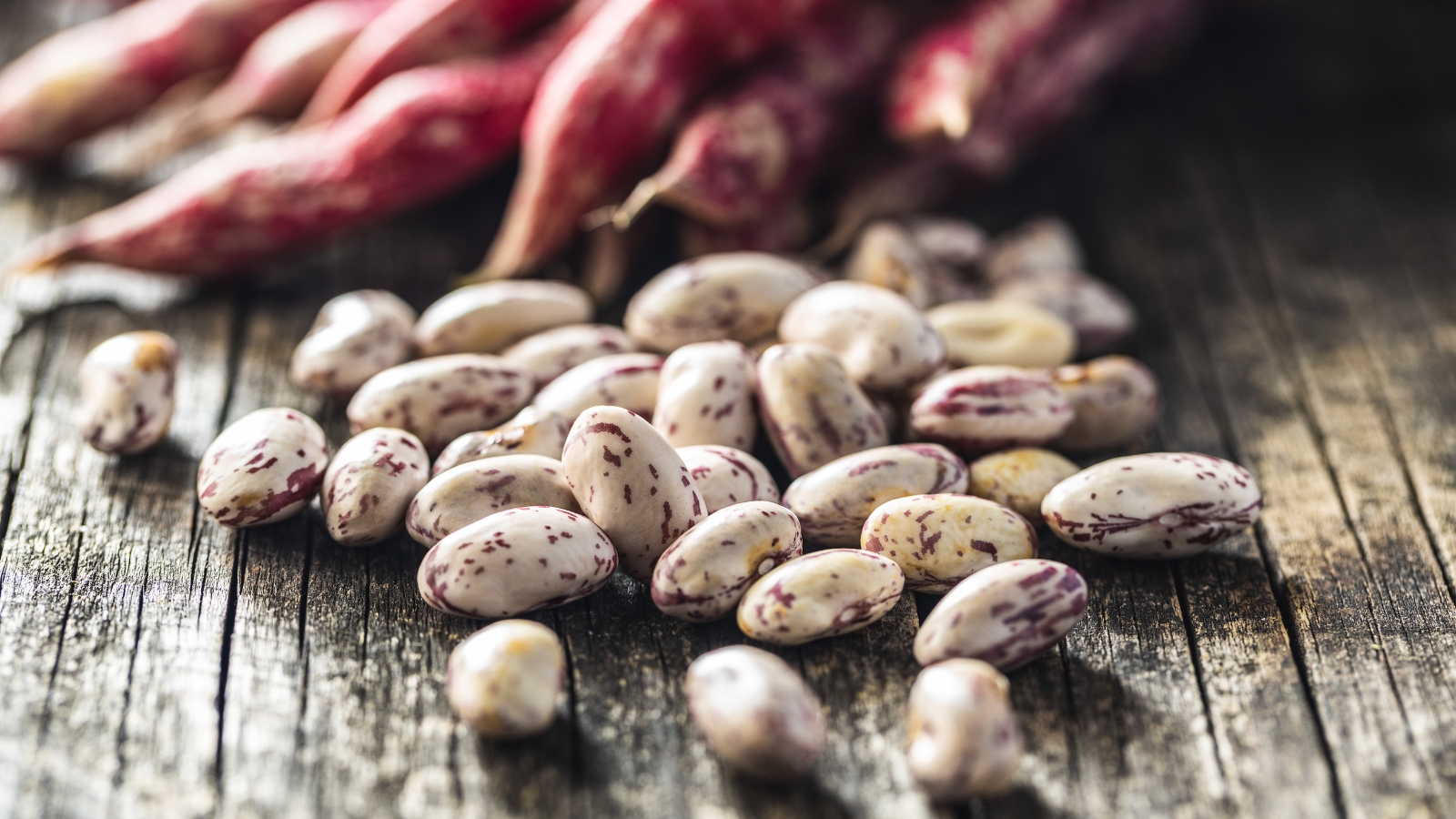

Don’t neglect to keep away from losing your favorite heirloom and open-pollinated varieties for planting subsequent yr! Beans are distinctive on account of we eat the an identical part of the plant that we are going to save to develop.
Each time you open a saved jar of dried beans, you’ll put apart the seeds for future planting. Consider to label your seed packets and keep them in a cool, dry, darkish place until subsequent spring.
Ideally, shriveled pods are left to mature on the vine until the seeds rattle inside. However when moist local weather arrives early inside the fall, you would need to select the beans just a bit early and permit them to dry indoors in a warmth location with a fan.
Save Seeds


Don’t neglect to keep away from losing your favorite heirloom and open-pollinated varieties for planting subsequent yr! Beans are distinctive on account of we eat the an identical part of the plant that we are going to save to develop.
Each time you open a saved jar of dried beans, you’ll put apart the seeds for future planting. Consider to label your seed packets and keep them in a cool, dry, darkish place until subsequent spring.
[ad_2]
Provide hyperlink
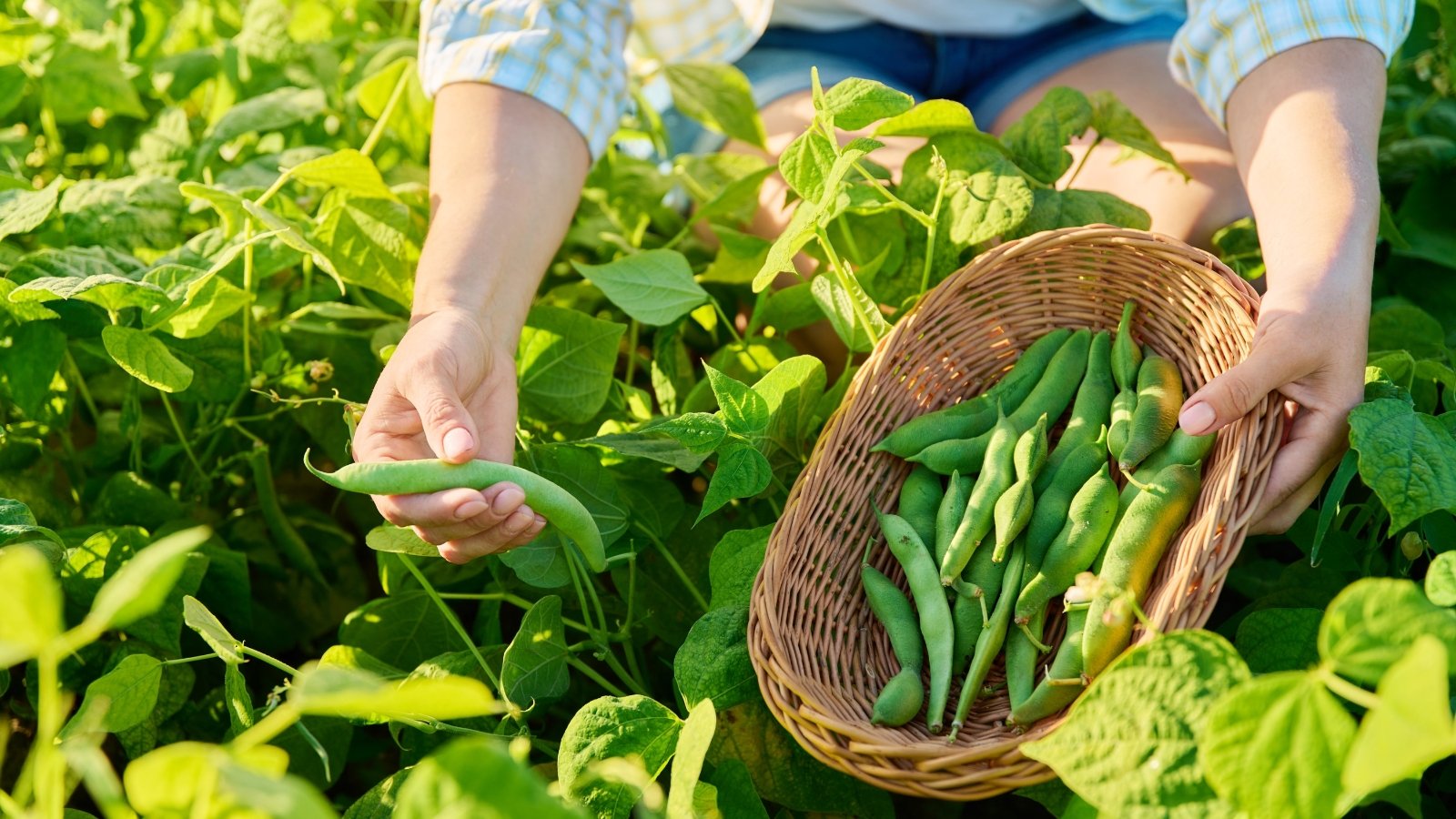
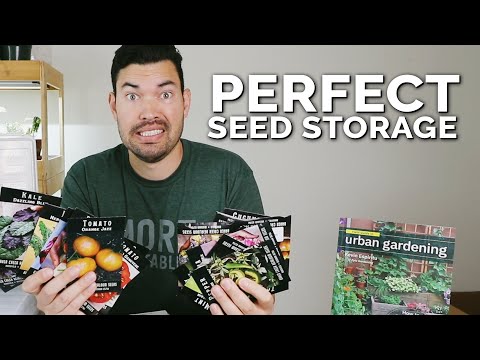
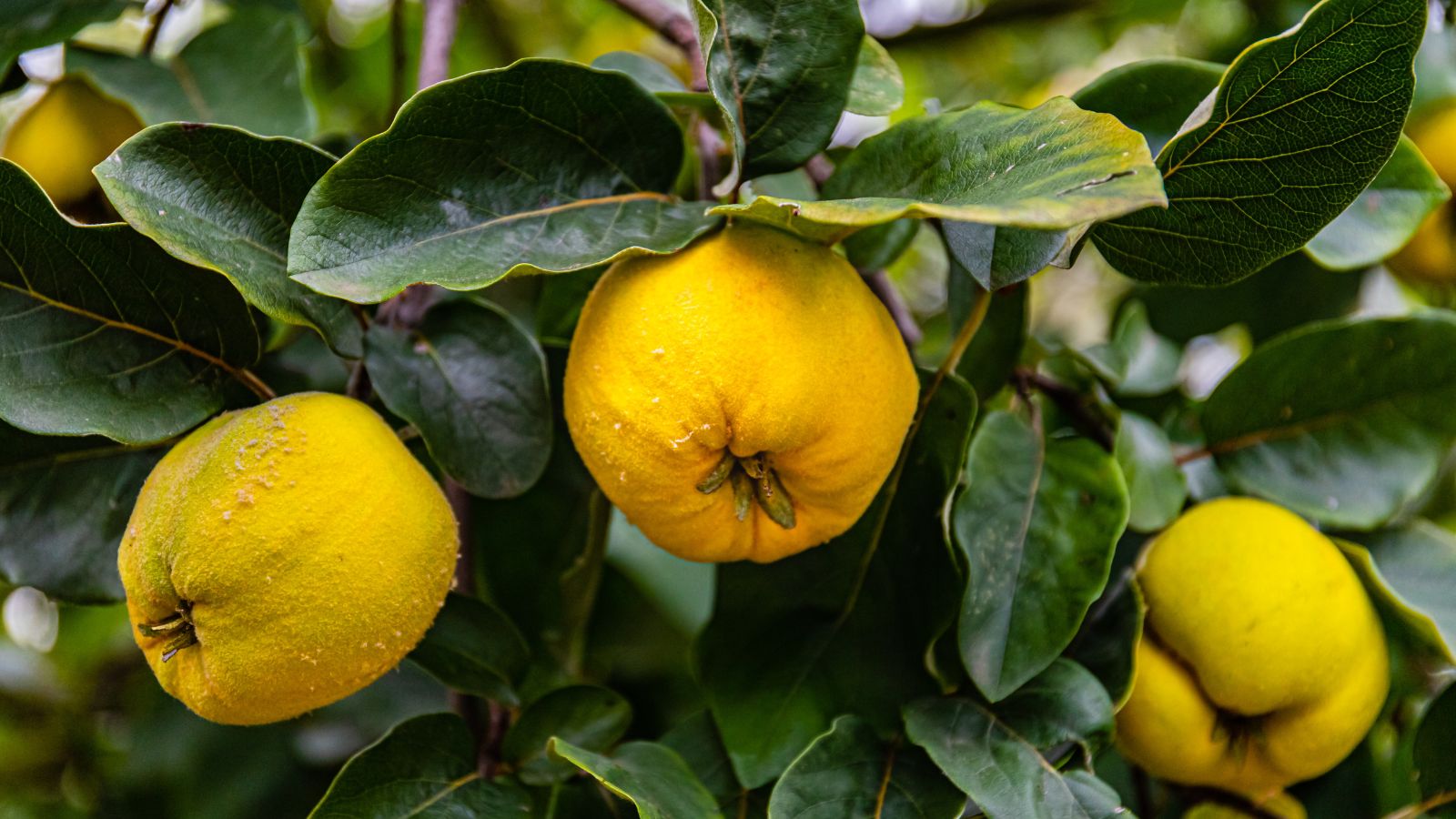
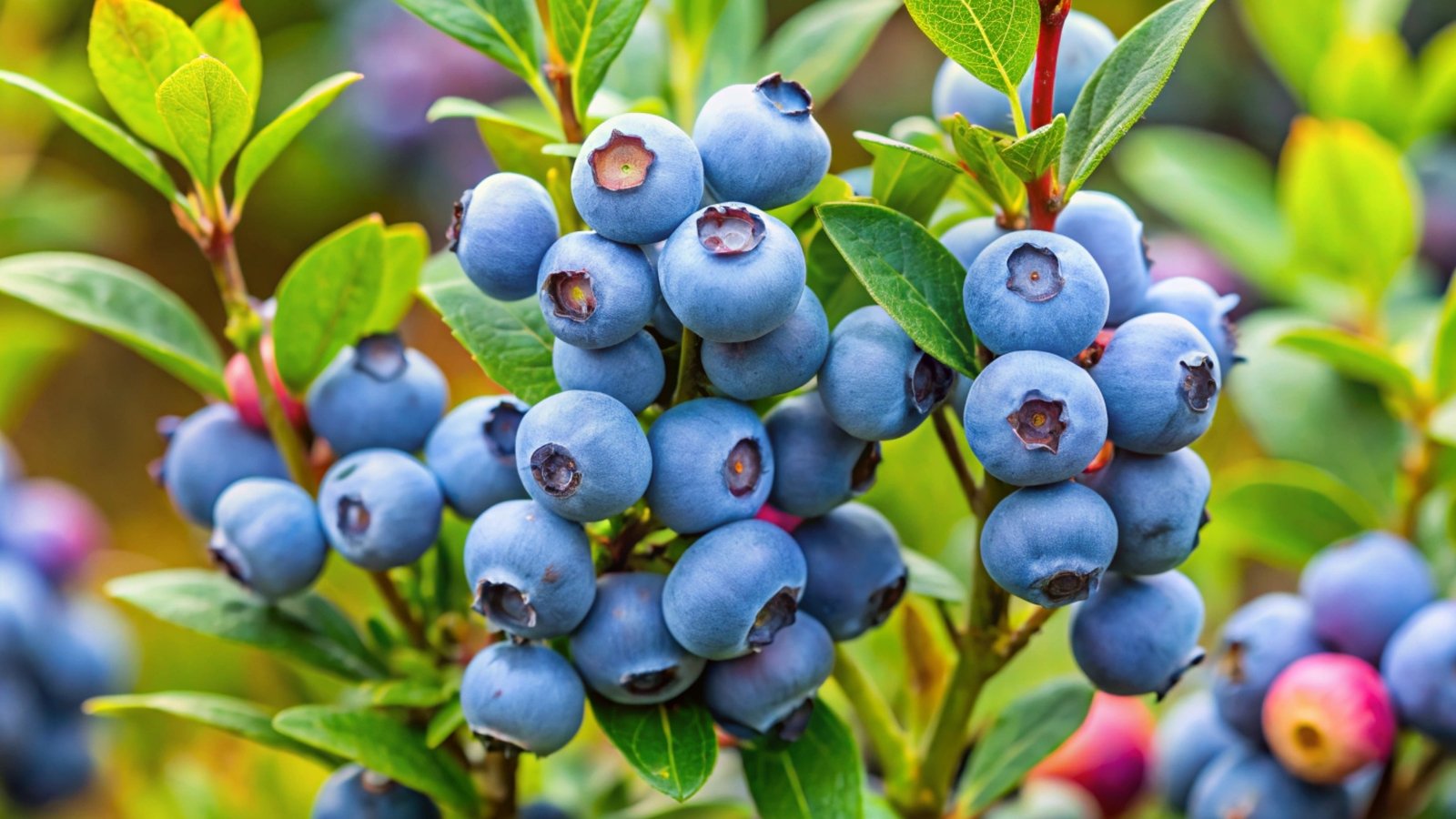
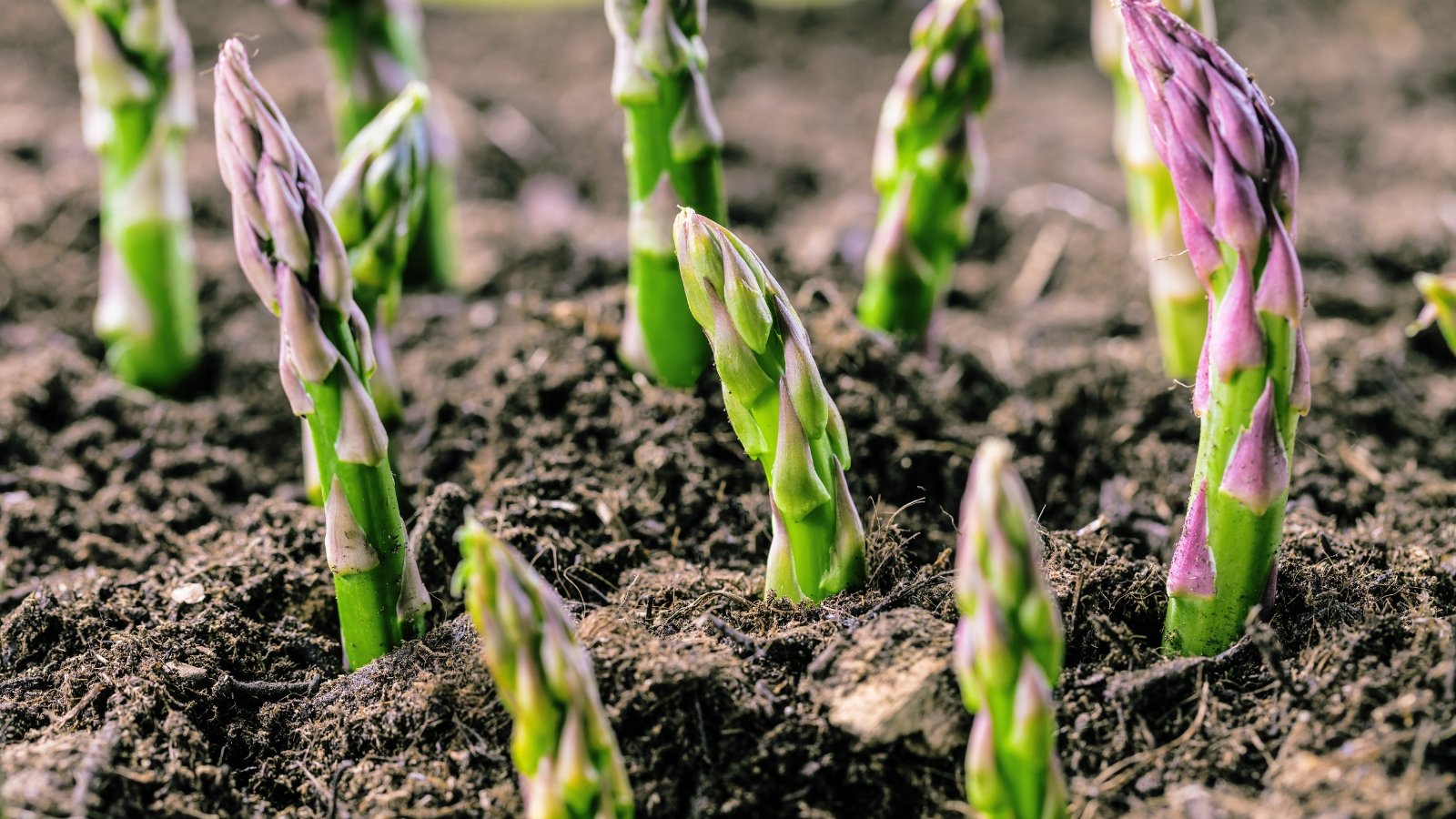
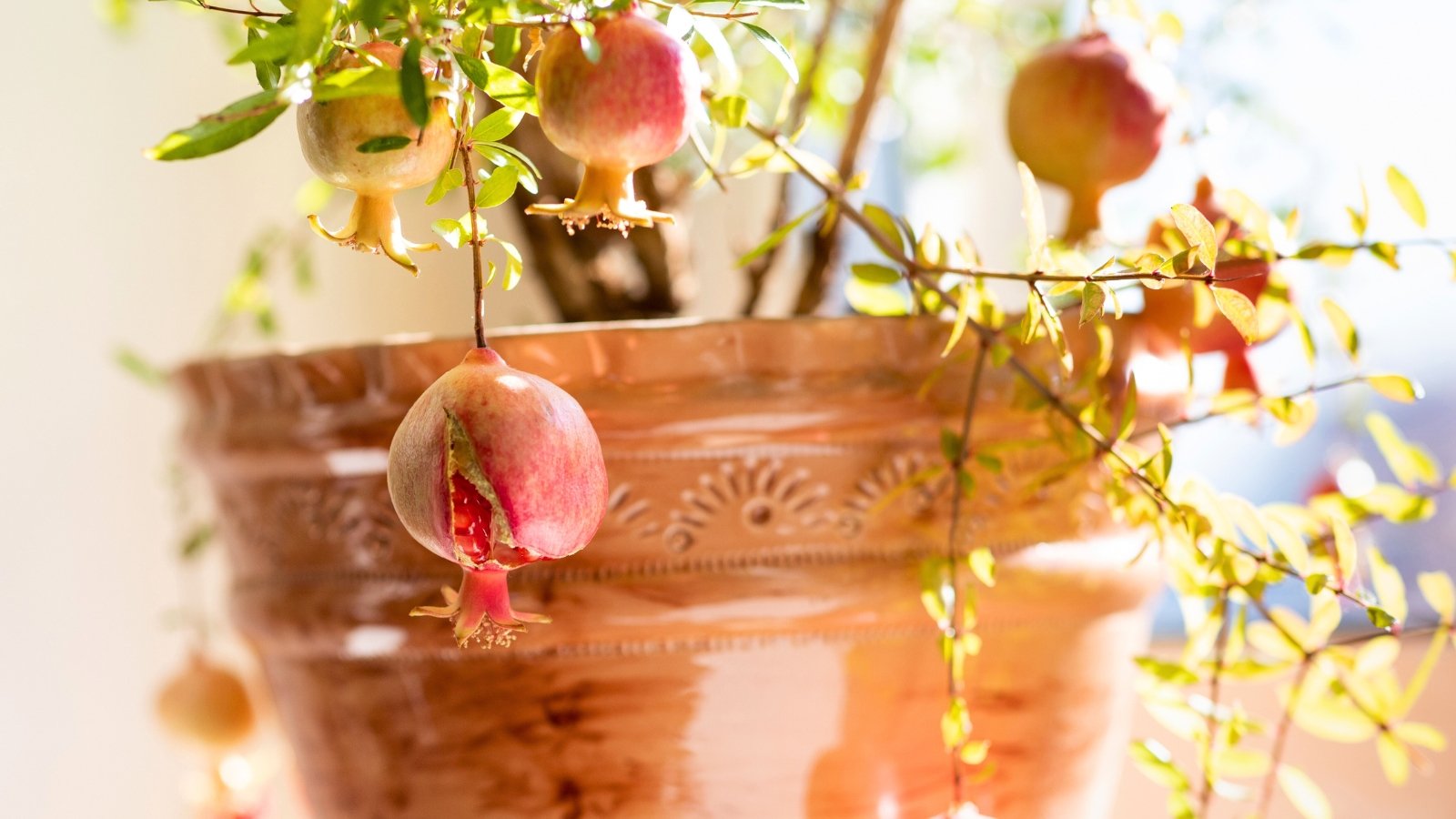
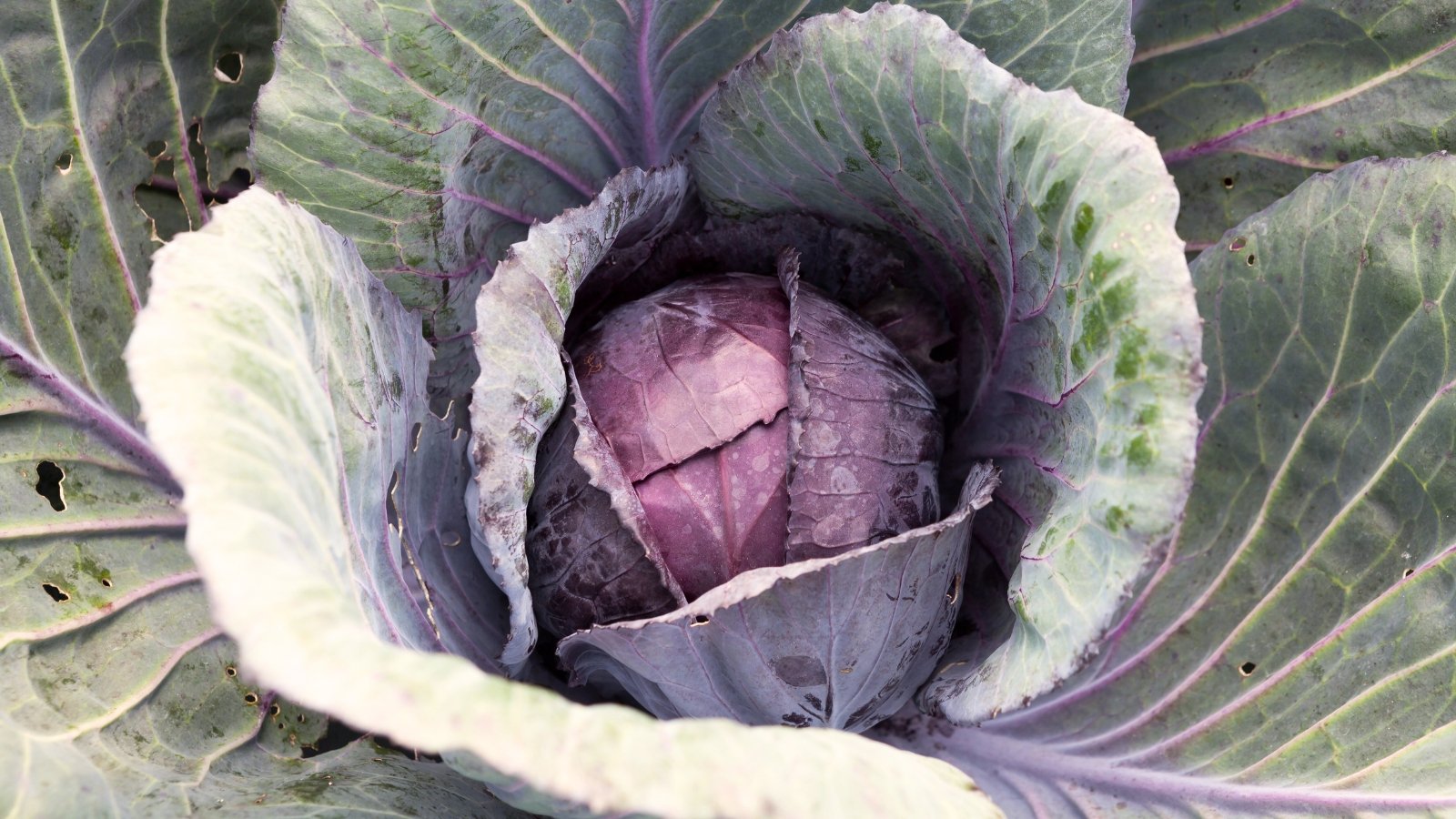
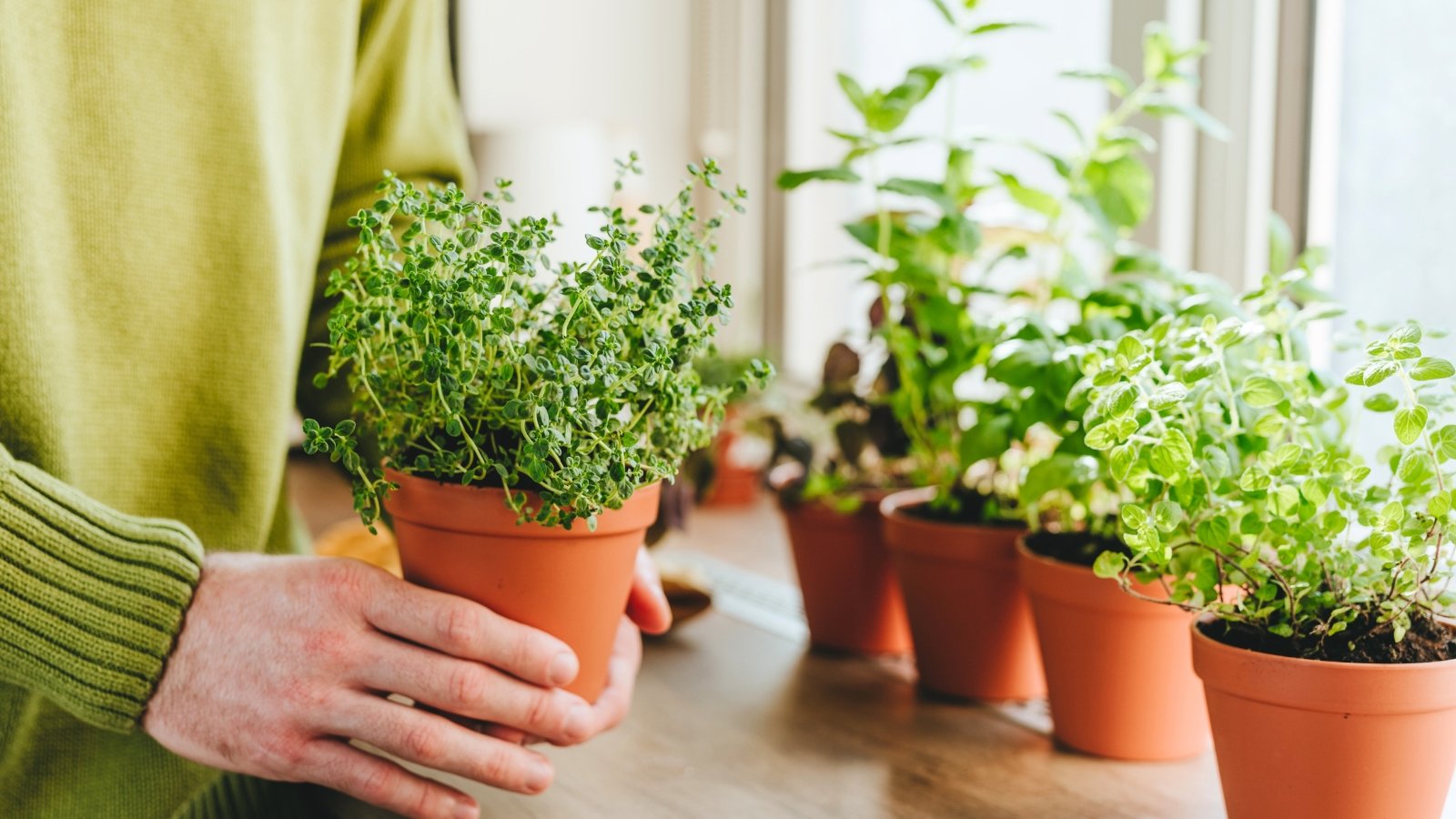
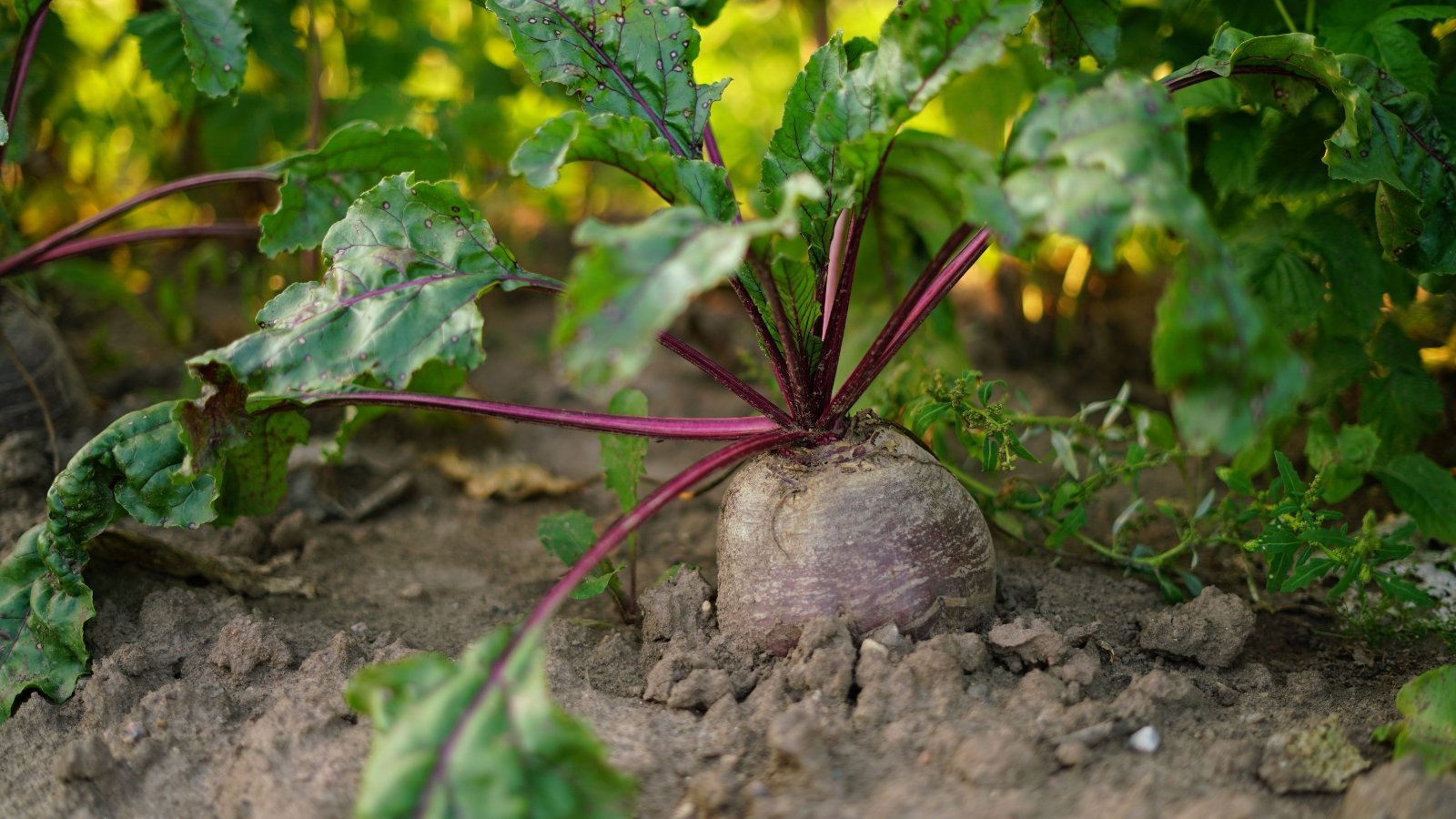
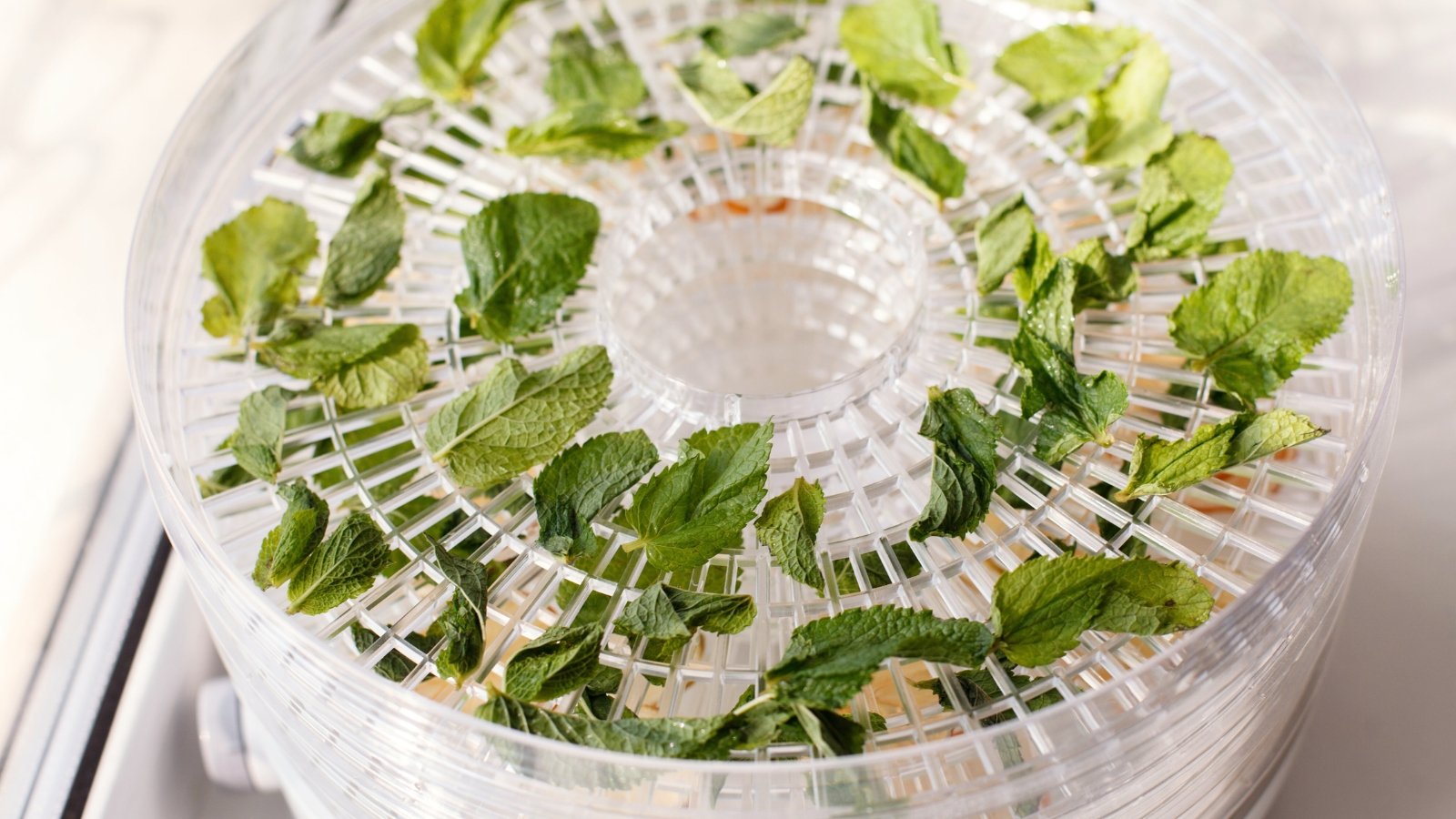
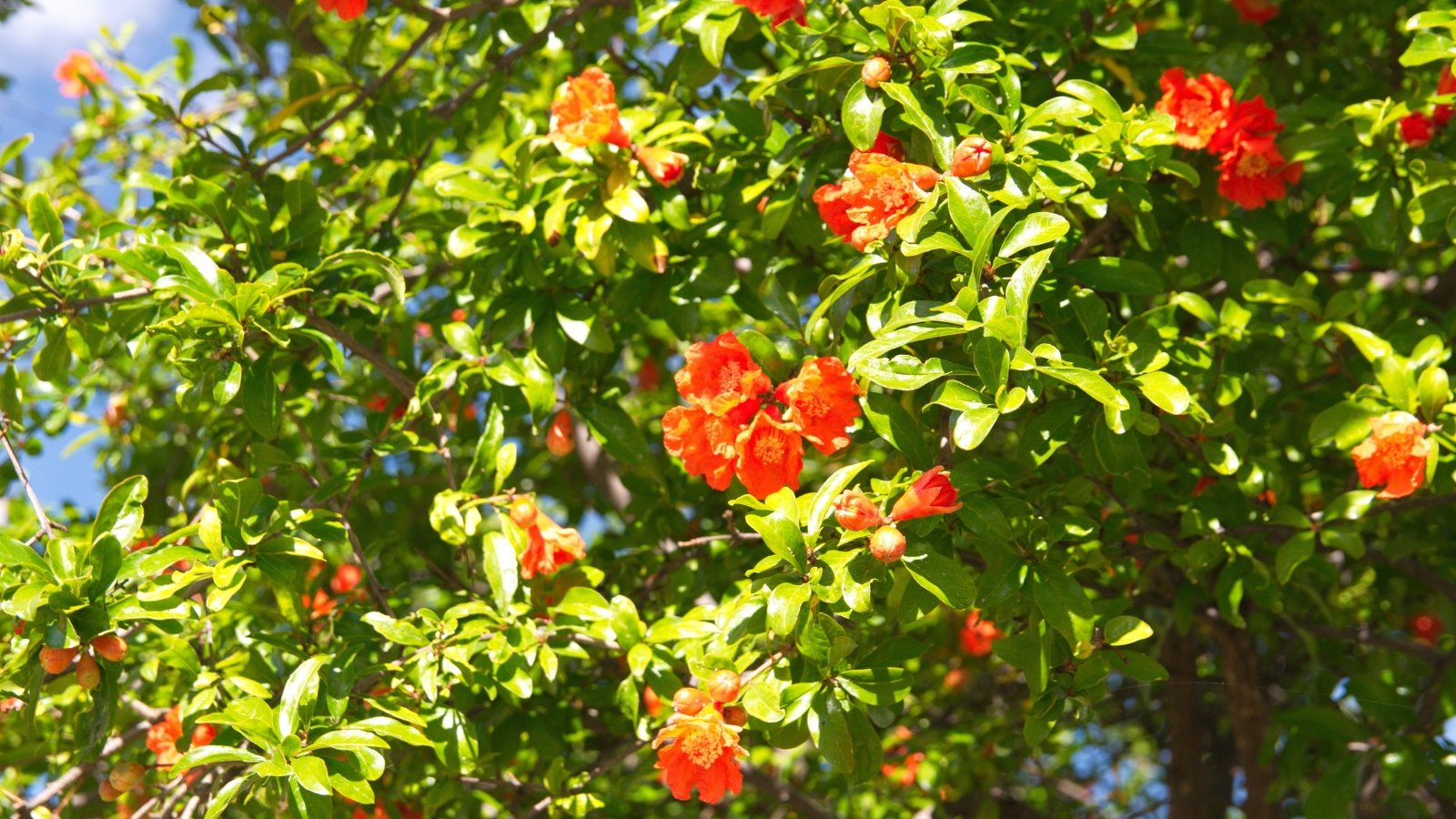
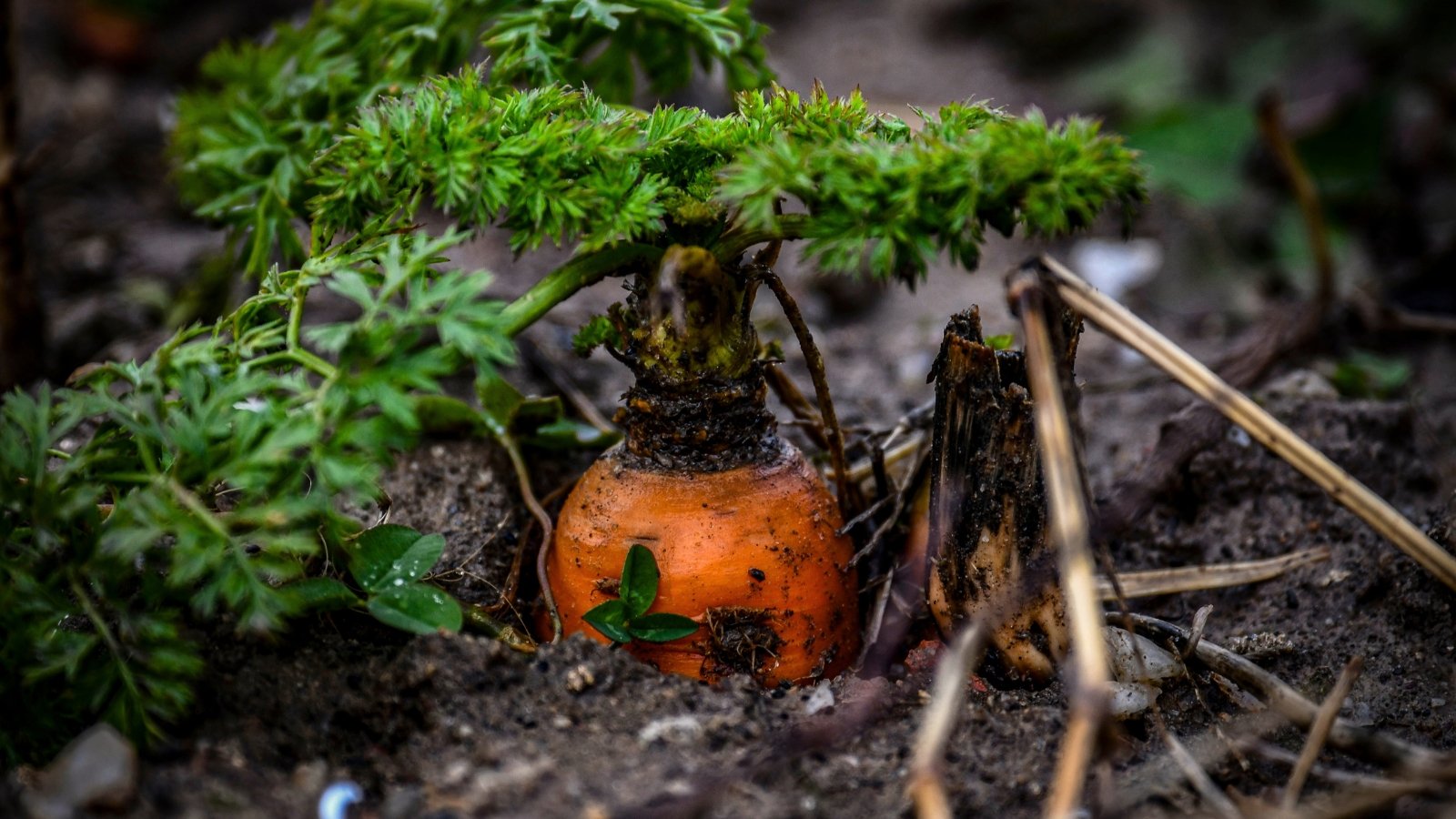

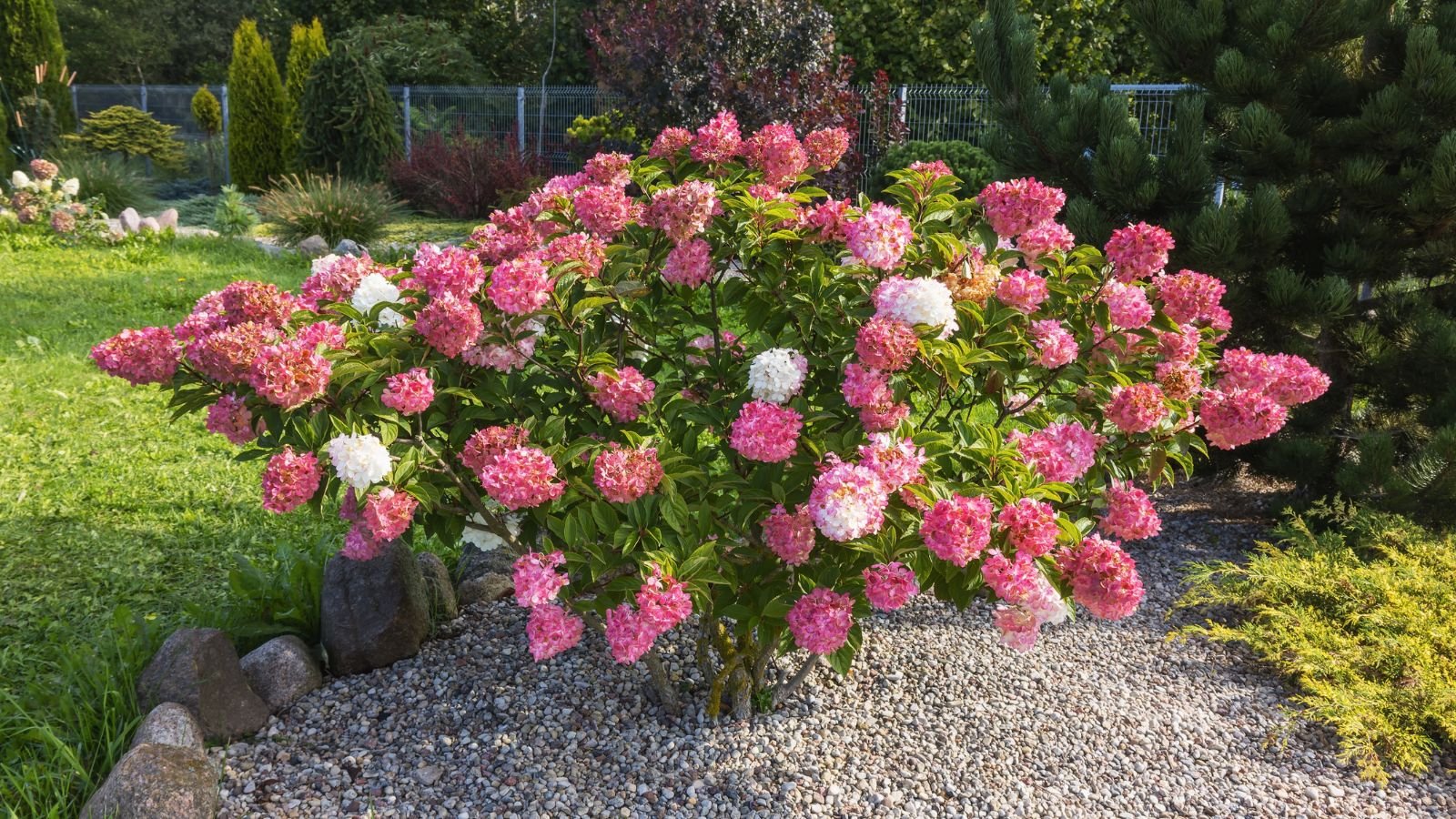
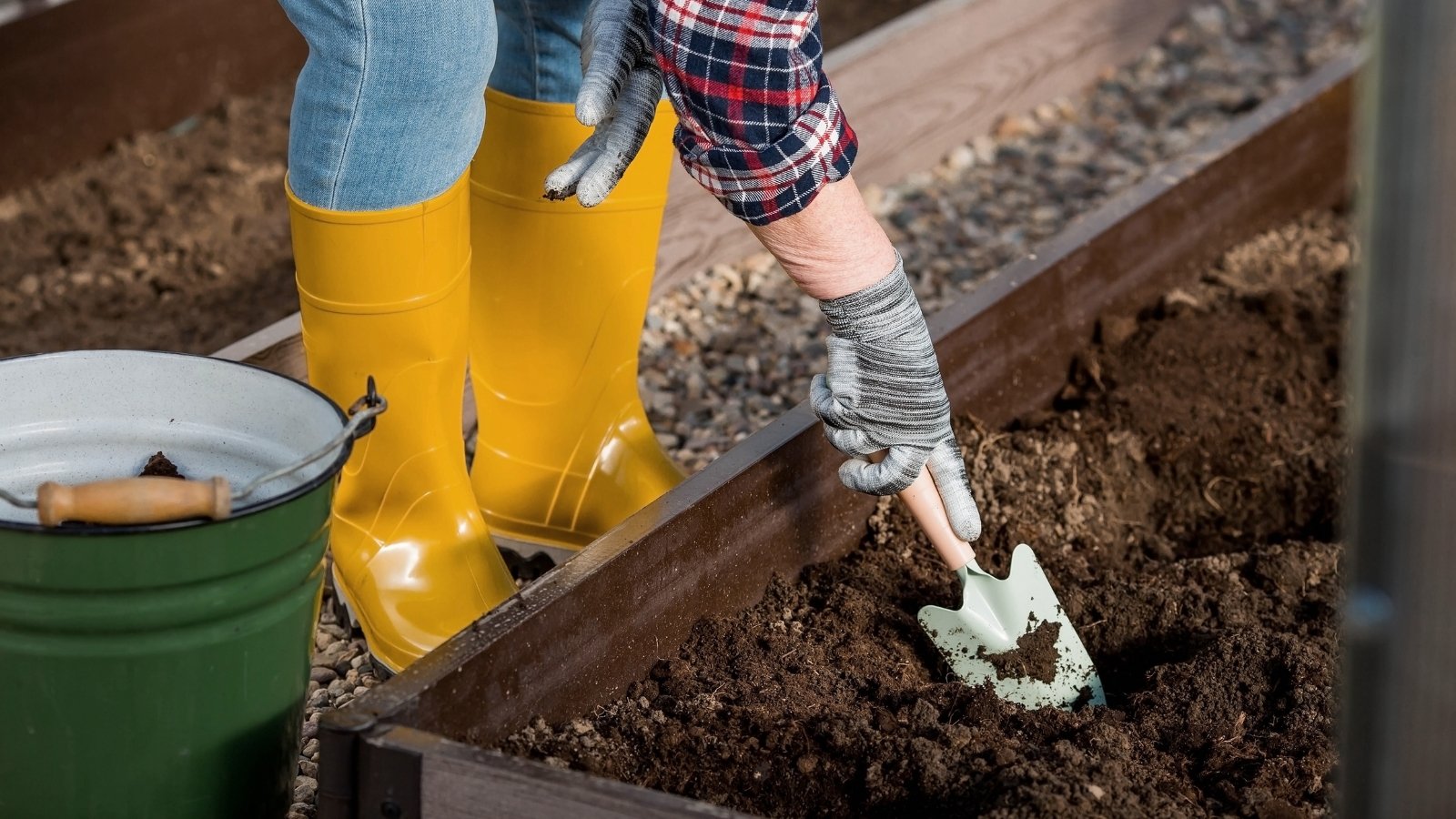
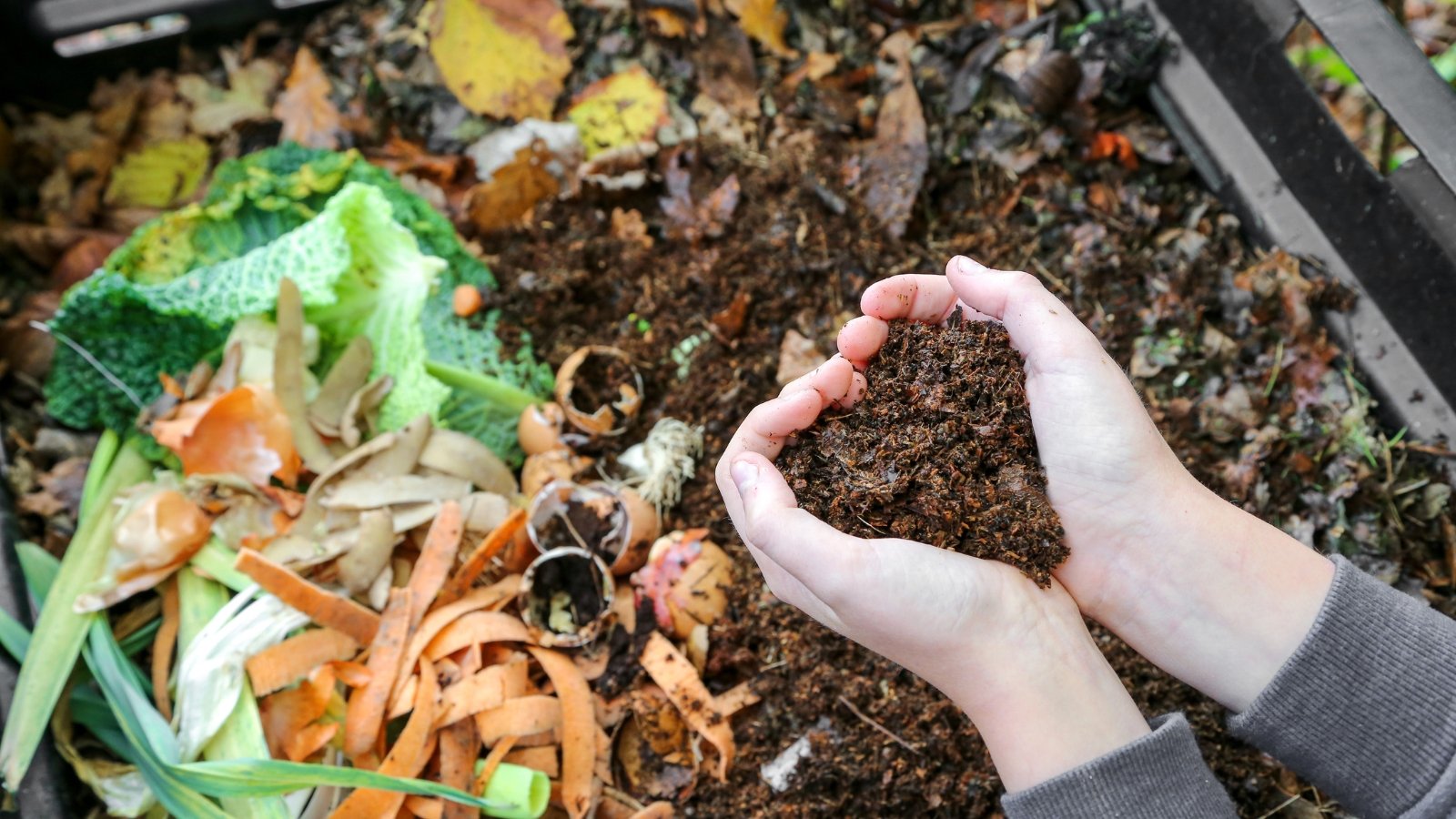
Leave a Reply